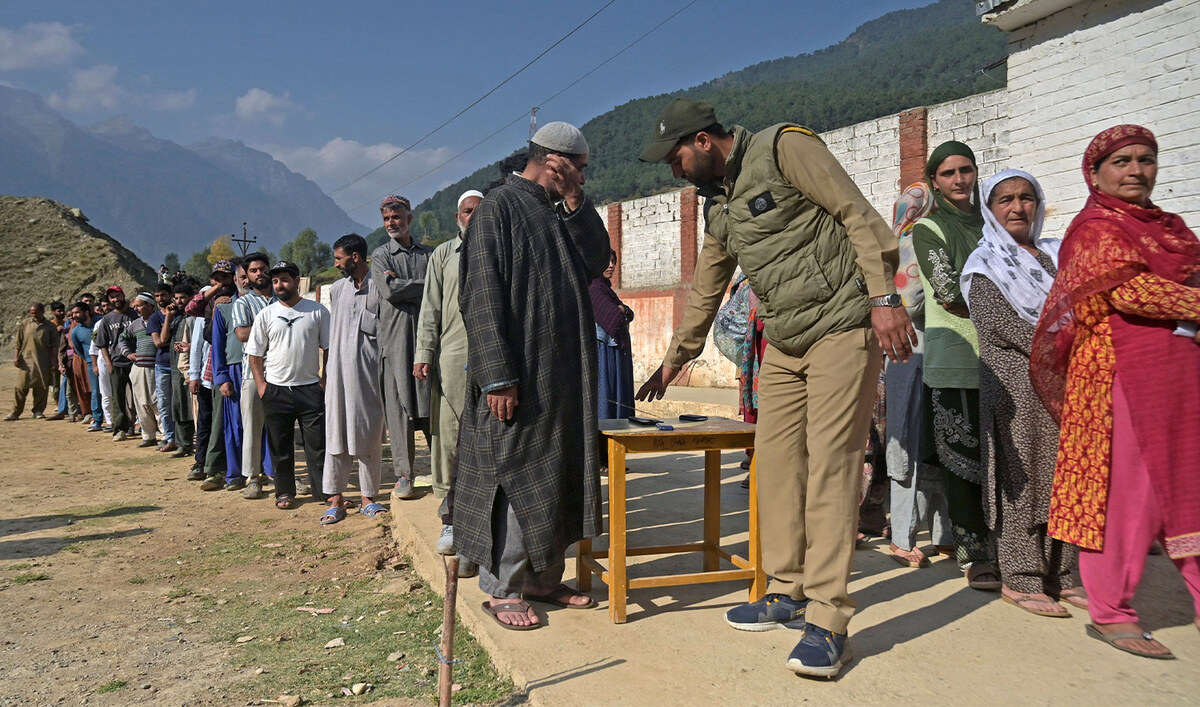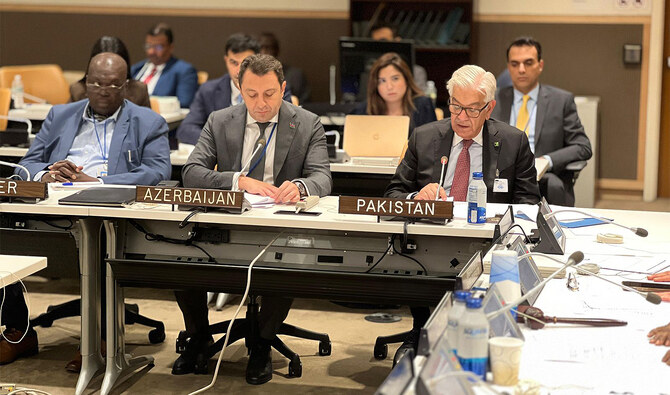ISLAMABAD: The Organization of Islamic Cooperation’s (OIC) Contact Group on Kashmir has rejected the elections in the Indian portion of the disputed Himalayan region, state-run media reported on Thursday, highlighting that the polls cannot replace the granting of self-determination rights to the Kashmiri people.
Defense Minister Khawaja Asif represented Pakistan at the meeting chaired by OIC Secretary-General Hissein Brahim Taha on the sidelines of the UN General Assembly’s 79th session which also included officials from Turkiye, Saudi Arabia, Azerbaijan and Niger.
At the outset of the meeting, Asif briefed the Contact Group members about the deteriorating situation in Indian-administered Kashmir while mentioning human rights violations Indian forces.
Kashmir is India’s only Muslim-majority territory that has been at the center of a dispute with neighboring Pakistan since 1947. Both countries fought wars and border skirmishes over the region.
“The OIC Contact Group on Kashmir firmly rejected unwarranted claims of Indian leaders over Azad Jammu and Kashmir and Gilgit-Baltistan [which are part of Pakistan],” the Associated Press of Pakistan (APP) reported on Thursday.
“A joint communique issued after the meeting also underscored that the Lok Sabha or Legislative Assembly elections in Indian-administered Kashmir cannot serve as a substitute to the grant of the right to self-determination to the Kashmiri people.”

A security personnel stands guard as voters queue up to cast their ballots at a polling station during the second phase of voting for local assembly elections, in Ganderbal on September 25, 2024. (AFP/File)
More than nine million voters are participating in the three-phase elections that are yet to conclude in the region. It was the first time India has invited foreign diplomats to witness voting in Kashmir which Prime Minister Narendra Modi’s government stripped of its partial autonomy five years ago.
The communique emphasized that peace in South Asia depended on the final settlement of the Kashmir dispute in accordance with UN Security Council resolutions. It called for reversing the unilateral measures taken on August 5, 2019, when the Indian government unilaterally revoked Article 370 that granted the region limited autonomy.
The OIC also rejected the Indian Supreme Court’s verdict over the matter and emphasized that “domestic legislation and judicial verdicts cannot be invoked to undermine the internationally-recognized disputed status of Jammu and Kashmir.”















